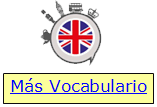|
ACADEMIC ENGLISH
Academic English style is generally evident in a:
Journal (like a technical/academic magazine); Text book; Essay; Academic
article; Report; Dissertation; Thesis; etc. WRITTEN
Lecture; Talk; Workshop; Presentation; Tutorial; Seminar; Conference;
etc. SPOKEN
Different style of language compared to General English. Key features
include:
More abstract, more impersonal, more structured, more organised, usually
formal (written), often more technical, often more complex, avoids
ambiguity, may include references to other sources.
-Avoid personal pronouns, eg. I, me, you, us, etc.
-Use the Passive (to be impersonal):
eg. the liquid was heated to 20 degrees C; it can be seen that the
species evolved.
-Avoid contractions in written academic Eng., but usually OK spoken:
eg. It will not be resolved (not “won’t”); the conclusions are not
definitive (not “aren’t”)
–Nominalisation = using nouns rather than verbs. This sounds more
academic:
eg. “…the Norman invasion of Britain in 1066, provoking a huge
linguistic change.” is better than “…when the Normans invaded Britain in
1066 and it provoked a huge change.”
-Use plenty of linking words or signpost your discourse:
eg. Firstly; Secondly; Next; A further point; Finally; Lastly – LISTING
Moreover; In addition (to); Additionally; Furthermore; What is more –
ADDING INFO.
However; Nevertheless; Nonetheless; Despite; In spite of; Whereas;
Whilst; Although; Albeit; Notwithstanding; Be that as it may; On the
other hand – CONTRAST/CONCESSION
For example/instance; As an/one example; As exemplified by___; To
illustrate – EXAMPLE
According to Smith (1987); As Smith (1987) said; Smith (1987) wrote/stated
– REFERENCE
In conclusion; To conclude; To sum up; In brief; All in all; In short –
CONCLUSION
 *Dispones
de más
PODCAST en inglés publicados en los cuadernos anteriores *Dispones
de más
PODCAST en inglés publicados en los cuadernos anteriores
a los que puedes acceder directamente así como al índice de su
contenido. |
|
|
